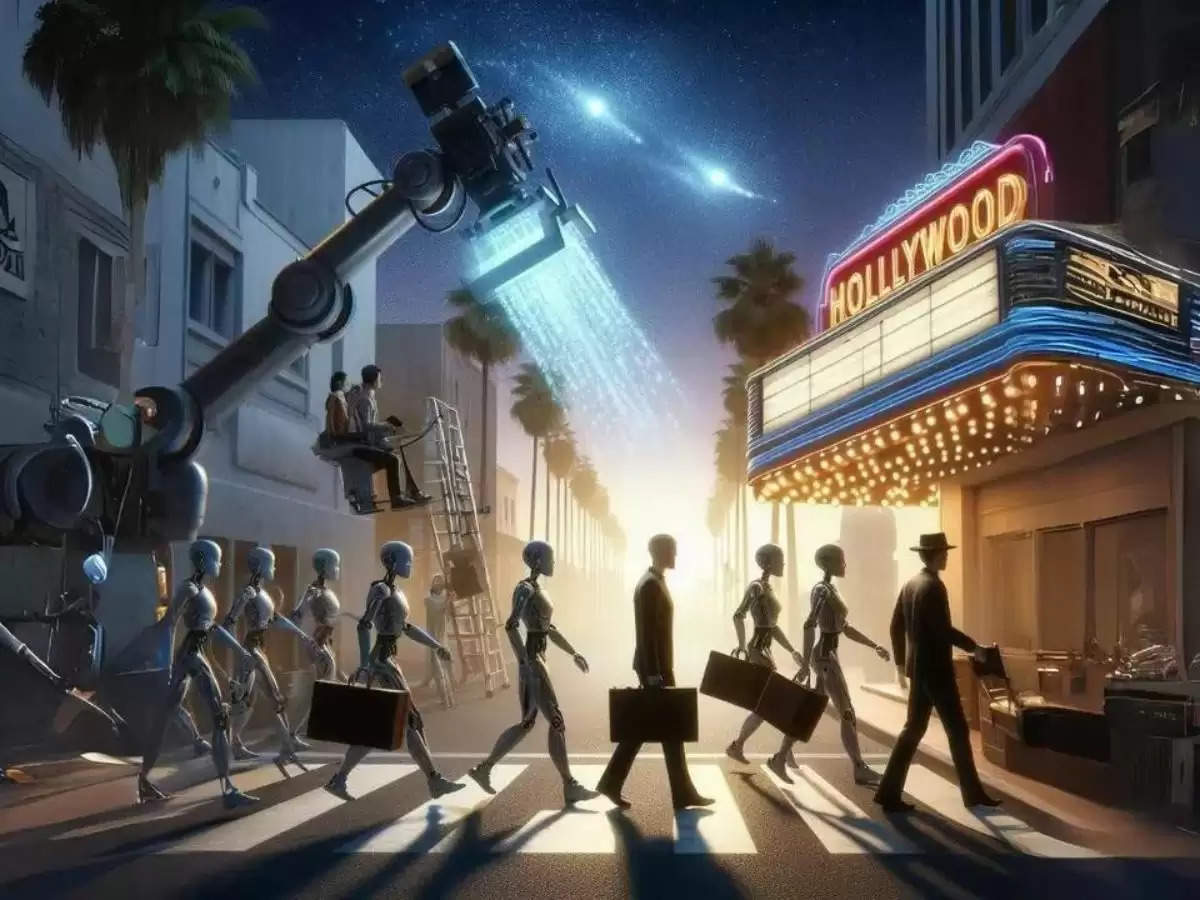What impact could an AI deal have on the future of a major movie studio in Hollywood?

A1 Digital India News: When Hollywood actors took to the streets for a 118-day strike last year, many of them waved signs that read, “No digital clones”, “AI is lifeless”, and “AI is not art”. These angry performers were expressing a growing sentiment among writers, video game voice actors, and many other creative people: that generative AI tools trained on their work could threaten their jobs and transform the entertainment industry. When the strike ended, actors were given new, hard-earned protections from AI-generated clones. Since then, California has passed several landmark laws limiting Hollywood’s use of certain generative use cases of AI. But none of these efforts will stop major studios from using generative AI to reduce the cost of new movies and shows.
Lionsgate, the studio behind popular film series like The Hunger Games and John Wick, recently announced that it is allowing a startup to work across its catalog aimed at providing storyboarding and other pre- and post-production work. Make those models AI possible. The deal is the first of its kind between a studio and an AI producer, but it's unlikely to be the last.
As part of the new deal, Lionsgate will let New York-based AI research firm Runway AI create generative models trained on its 27-year-old corpus of 20,000 titles. The custom generative AI model will then create a "cinematic video," which the companies say will initially be used as inspiration during storyboarding sessions or pre-production meetings.
Lionsgate believes these tools will help filmmakers and other creatives "expand their work" by providing "capital-efficient content creation opportunities." In other words, AI could help create more images and visuals at a lower investment cost. After all, the same tools could be used to generate explosions or other background effects in movies, according to statements made by Lionsgate founding vice president Michael Burns during an interview with The Wall Street Journal.
"We do a lot of action movies, so we play a lot of things and that's what Runaways does," Burns said during an interview with the Journal. Burns also said he hopes the tool could save the studio "millions of dollars."
This news comes just weeks after Lionsgate distanced itself from a trailer for its film Megalopolis that was rumored to contain inaccurate, AI-generated movie reviews. A report from Deadline states that the marketing consultant in charge of the trailer's content has reportedly been removed from the marketing team due to the public's response.
At least for now, it seems this particular model AI stays away from creating "clones" or replicas of actors. A person familiar with the deal told Popular Science that the AI runway model is not being used to create new AI characters or mimic existing actors. Instead it will be used primarily as a tool to expand and enhance existing projects, the person said.
But even if Lionsgate is shying away from using generative AI to create digital actors, there's no guarantee that other studios will take a similar approach. Critics of AI's impact on the film industry, including many background actors, worry that studios could easily replace their AI doppelgangers, who would essentially be redundant. SAG-AFTRA, the union representing Hollywood actors, recently added language to its bargaining agreement that requires producers to tell actors how their digital replicas will be used, and to get their consent for inclusion before a show or film includes the replicas. The union deal was widely seen as a win, but not all actors were satisfied. Some object to their work being used to train AI models.
The Writers Guild of America (WGA), a separate union representing many Hollywood screenwriters, has come to its own agreement clarifying that AI-generated writing cannot be considered "literary content." "We see AI as a great tool to enhance, extend, and complement our current operations," Burns said in a written statement. Meanwhile, Runway is currently fighting a copyright class action lawsuit brought against it by several visual artists who claim the company trains models for their work without permission.
Runway filed a motion to dismiss the case. Hollywood's deepfake laws won't stop studios from partnering with AI firms. The Lionsgate settlement comes less than a day after California Governor Gavin Newsom signed two bills that limit the ways Hollywood can use certain AI-generated features. The first bill,
